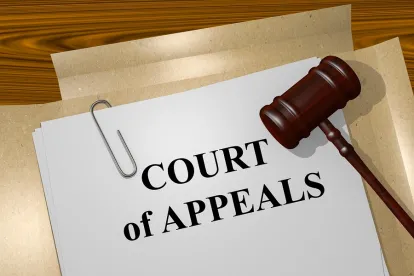Perhaps no Circuit has featured as robust and sustained a debate about administrative deference as the Sixth. This month Judge Raymond Kethledge added his voice to that conversation—though not in a judicial opinion.
Instead, Professor Kethledge donned his University of Michigan hat (helmet?) and delivered the 15th Annual Hayek Lecture at the NYU Classical Liberal Institute. Past lecturers included the economist and historian Deirdre McCloskey (another Ann Arbor native) and the Sixth Circuit’s own Jeff Sutton (whose 2013 Hayek lecture addressed technology and federalism—a topic that later animated one of Judge Kethledge’s most notable opinions, U.S. v. Carpenter, regarding cell-site records).
Judge Kethledge’s remarks drew the attention of the Wall Street Journal, which published excerpts regarding Hayek’s view (and Kethledge’s) on the “difference in outlook” between a judge’s interpretation and an agency’s:
“To be consistent with the rule of law . . . the agency’s interpretation must be provisional—in the sense that it must always be subject to review by ‘independent judges who are not concerned with any temporary ends of government.'”
[Grizzled administrative lawyers will note the, ahem, counterintuitive reality that current Supreme Court doctrine is precisely the opposite: otherwise authoritative Court of Appeals interpretations are “provisional” and may, at least in theory, be “overruled” by a contrary agency interpretation. “[T]he agency may, consistent with the court’s holding, choose a different construction, since the agency remains the authoritative interpreter (within the limits of reason) of such statutes.” NCTA v. Brand X, 545 U.S. 967 (2005). SMH, as the kids say.]
Judge Kethledge observes the same phenomenon, but would reach a quite different conclusion about the relative roles of courts and agencies:
“It seems to me that the agency is not trying to answer the same question that we are. The court tries to find the best objective interpretation of the statute, based on the statutory text. The agency instead asks if there is a colorable interpretation that will support the policy result that the agency wants to reach. When judges engage in that kind of analysis, we call it judicial activism. And most observers condemn judicial activism as an arrogation of legislative power to the judiciary. It is not clear to me why the result is any better when the arrogation is done by the executive.”
Administrative versus judicial interpretation. Not Hayek’s most famous 20th century battle. (h/t Russ Roberts). But one quite pertinent to the Sixth Circuit’s jurisprudence in 2019.




 />i
/>i

